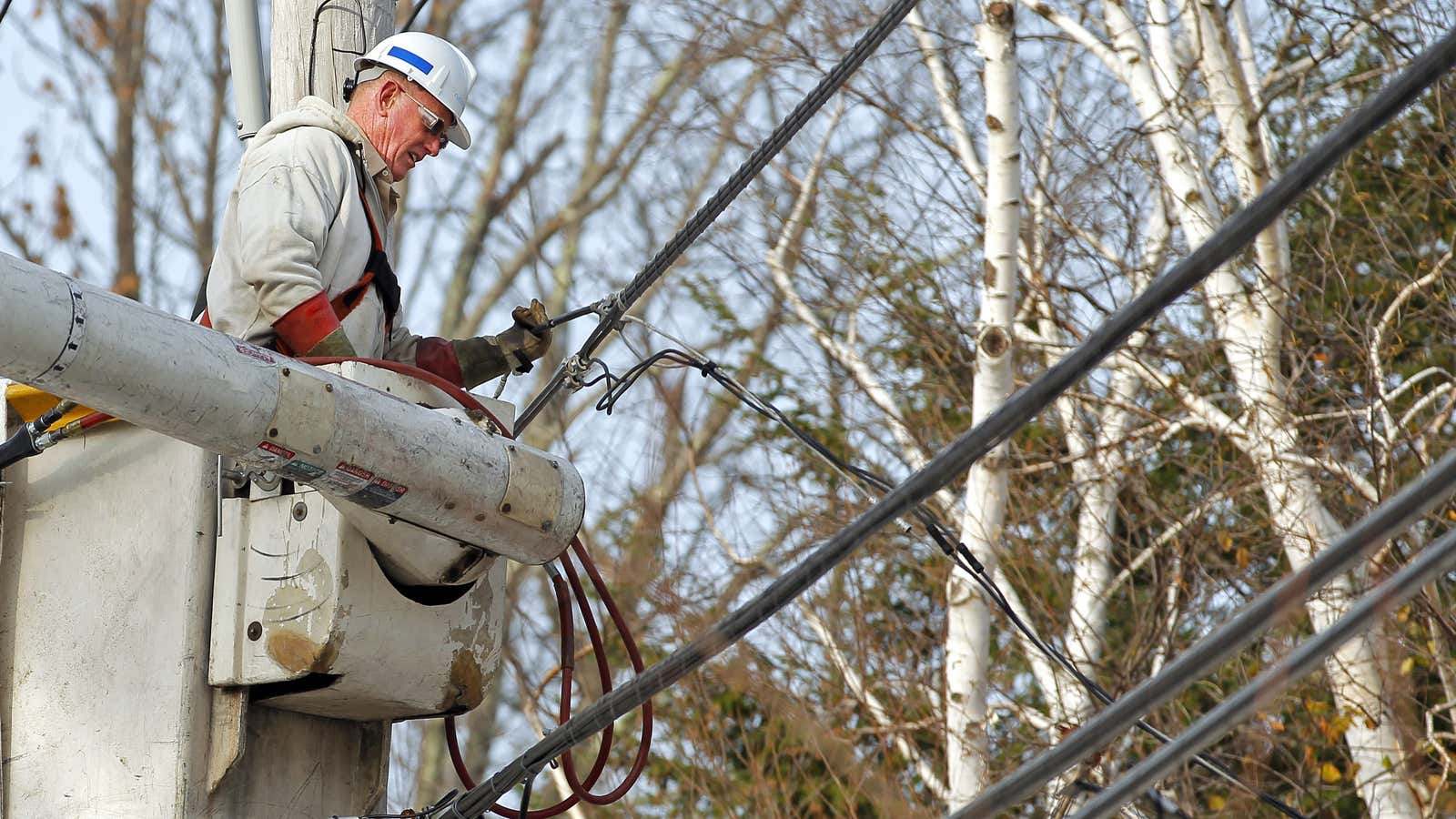Most economists agree that the single most effective policy to spur a transition to cleaner forms of energy is to put a price on carbon emissions. If fossil fuels were much more expensive to burn, then power companies, factories, drivers, and other consumers of oil, gas, and coal would have an incentive to switch to renewables, even without special tax credits or mandates.
But in practice, that approach is a bear to execute.
Setting the right carbon price is a minefield of assumptions. Efforts to pass a national price have all failed in Congress, and succeeded in only a dozen states in the form of cap-and-trade. The price suggested by the Trump administration is far too low. And a carbon tax has fallen out of favor with environmental activists, who worry it would work too slowly and give policymakers an excuse to avoid systematic reforms.
Carbon pricing is such a hot potato that presidential candidate Joe Biden’s notably aggressive climate platform doesn’t even call for a carbon tax. So does that mean the idea is dead in the water? Maybe not.
Last week, the obscure, Republican-controlled federal agency that oversees the electric grid said it would support state or regional efforts to price carbon in the power sector. Translation: There’s a good chance the US could get a carbon price—rather, a mishmash of regional carbon prices—even without support from Congress or the president.
The Federal Energy Regulatory Commission (FERC) doesn’t often make headlines. Its usual business is to make sure that interstate electric grids are operating properly and charging appropriate rates. But in September, FERC’s commissioners agreed to weigh in on carbon pricing, in response to a proposal from New York grid operators to start imposing a carbon price on fossil-fired power plants.
The first-of-its-kind proposal would effectively force grid operators to prioritize electricity coming from wind, solar, nuclear, or other zero-carbon sources, because law requires operators to fill demand with the lowest-cost sources first. Making electricity from fossil fuels more expensive would ramp up pressure on utility companies to invest in clean alternatives. And because it would likely increase wholesale prices in the interstate electricity market (and, by extension, retail prices), FERC would need to sign off.
In a statement, FERC chair Neil Chatterjee, a Trump appointee, said that the agency “encourages efforts to develop wholesale market rules that incorporate a state-determined carbon price in [wholesale electricity] markets.” States “should have confidence that those proposals will be not be a dead letter on our doorstep.”
As the prospects for a nationwide carbon price have waned, FERC has begun to change from a sleepy backwater to a central player in climate policy, said Jason Gundlach, a senior attorney at New York University School of Law’s Institute for Policy Integrity who co-authored a report on carbon pricing.
“There’s a recognition that FERC is going to be a major fulcrum in any energy transition policy,” he said.
But until its policy guidance last week, it hadn’t been clear whether FERC would help or hurt in that arena. Now, Gundlach said, the agency is essentially soliciting proposals for carbon prices from operators of the wholesale electricity market.
That’s a change that could not only reduce greenhouse gas emissions, but do it in a way that is less politically toxic, and has a greater likelihood of survival, than a traditional carbon tax.
“You’re talking about tweaks to the machinery that would be meaningful, but that don’t look like new taxes that are going to change someone’s life,” Gundlach said. “It’s much more subtle.”
